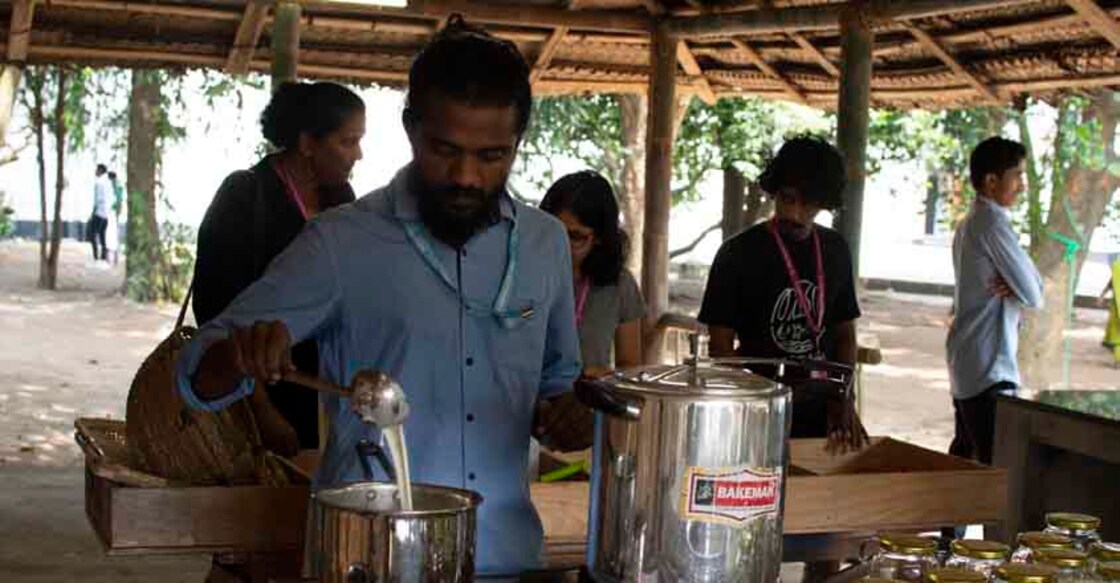Community kitchen at Biennale sees swell in cooks, sharers, eaters

Mail This Article
Kochi: As year-end crowd swelled at the Kochi-Muziris Biennale, the main venue of the art festival received visitors in a unique way over the weekend. A community kitchen that is also an artwork at the Aspinwall House had people cooking in greater numbers and serving the items to whosoever was around in the leafy surroundings.
Into the noon hour of Sunday wafted the scent of boiled tapioca and fish curry, courtesy a policewoman. "She chose to try her culinary skills here," said Sarath K, a B-Tech student, after partaking the combination with relish. "That was soon after an Australian boy of 11 years made chapattis for all."
The food at the kitchen seldom stays for long around. "For such is its demand…and popularity," adds Sarath, who also doubles as a volunteer at the 108-day Biennale that began on December 12.
It's all part of an artist project, named 'Sahodarar,' by Vipin Dhanurdharan, a Malayali. Inspired by historic community feast that took place not far from Kochi a century ago, the Kollam-born artist ensures that the kitchen at sea-facing Aspinwall has enough ingredients for any casual visitor to light the burners of the stoves at the Biennale and prepare the kind of dish or beverage one finds feasible as well as interesting.
"The idea stems from the feeling of equality and brotherhood," notes Vipin, with reference to the 'mishrabhojanam' at Cherai in 1917, when social reformer Sahodaran Ayyappan organised a community feast that included members of all castes at a time in a counter to untouchability was at its peak among Hindus of the region.
"In fact, community feasting had for ages been part of our culture. People in villages practised it. Food was cooked and served for everyone who was hungry," says Vipin, at his installation, which has a circular cement bench for people to sit across and converse while partaking food. "It's another matter that sentiments of caste and class linger in society even today. My work seeks to dilute it."

At Aspinwall, people from various walks of life and natives of lands far and near volunteer to prepare food, serve it and spread the message of global fraternity. "The co-eaters at a given time can be a local person with a foreign delegate, a wanderer from outside Kerala, an art historian from China, and academic from the West," notes Vipin.
While the community kitchen is primarily funded by the Kochi Biennale Foundation, there is good amount of donation trickling in from visitors dropping cash in a jar kept by the artwork.
"This is extremely eco-friendly, too," notes Lakshadweep-born artist N K P Muthukoya, who has come to the Biennale from Delhi where the septuagenarian lives. "The verdant looks of the Aspinwall have a special charm."

